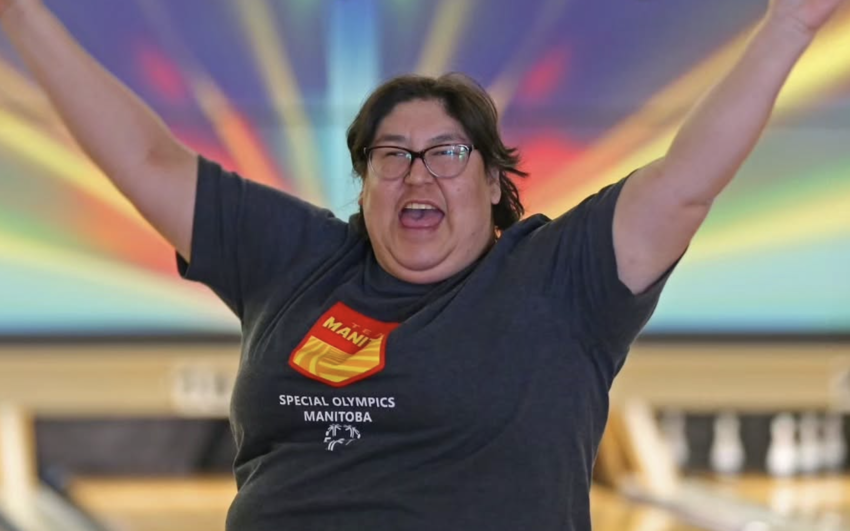Recognizing Fetal Alcohol Spectrum Disorder Awareness Day Through the Story of Kim Fontaine, Athlete and Advocate
For this year’s Fetal Alcohol Spectrum Disorder Awareness Day, Special Olympics Canada acknowledges the vibrant and warm-hearted Kim Fontaine: an athlete and self-advocate from Manitoba.
Throughout her many years in Special Olympics, Kim has swam, snowshoed, played floor hockey and participated in athletics. Now, she does 5-pin bowling and bocce, having recently won a silver medal in bowling at the Special Olympics Canada 2024 National Games in Calgary.
Kim said she likes trying out new things, which is why she enjoys the differences between her two current sports as much as some of the ways they may be similar. For instance, Kim enjoys the fact that bocce is outdoors unlike bowling, and has fun learning some of its unique mechanics like the pallina.
Diagnosed with Fetal Alcohol Spectrum Disorder (FASD), Kim has been a Special Olympics athlete for over 30 years, joining when she was just eight years old.
She explained that FASD has a lot of potential symptoms, and in her, it caused something similar to ADHD. Kim used to struggle with her attention span, and was unable to focus on things easily. She went through different medications and psychiatric treatments, until Kim’s family doctor found a drug that works.
Kim has made “hundreds of friends across Canada,” and stays connected with them through different group chats. She described Special Olympics as an “inspirational” way of getting to meet new people, while pursuing hopes and dreams.
“It’s like we just know each other by the way we’re feeling and stuff,” Kim said, “because we can just be each other and not have to judge one another.”
Like a lot of people with an intellectual or developmental disability, Kim said she is not always to truly be herself out in public. However, with the friends she has made through Special Olympics, there is at least one place in the world where Kim always has that freedom.
Kim comes from a large family. Her adoptive parents have eight biological children: seven daughters—one of whom has Down Syndrome—and a son. Including Kim, they also adopted three children with disabilities.

Identifying as someone of Indigenous descent, Kim was born in the Norway House Cree Nation, and currently lives in Winnipeg with her adoptive family.
Outside of Special Olympics, Kim is involved with Life Journeys, an organization that helps people with intellectual/developmental disabilities find employment, as well as providing a social space to engage in different activities. She also enjoys beading, both as a way of connecting with her Indigenous heritage, and as a fun, productive pastime.
“I make bracelets,” Kim explained, “and lanyards with small little beads this big [she then pinched her fingers a couple centimetres apart]. I also go for walks, try to keep active still.”
While looking back on her past experiences, Kim wanted to offer her fellow Special Olympics athletes some advice on how to make the most of things.
